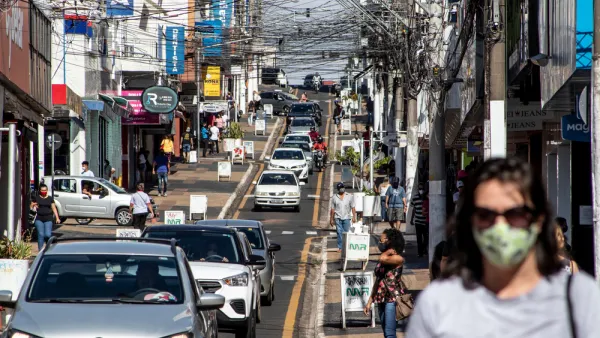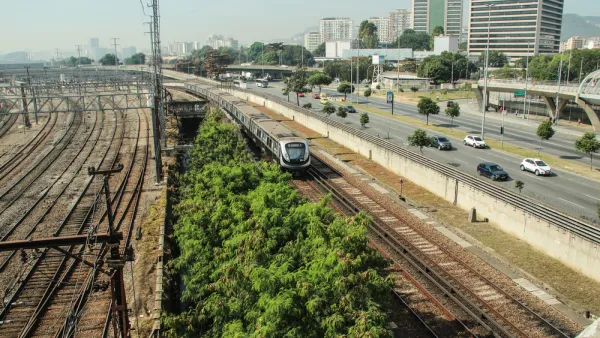Futile efforts to deal with rampant urbanization could fetter the region's robust economy and squander its potential to become a global economic powerhouse, according to the McKinsey Global Institute (MGI).
In a 60-page report titled "Building globally competitive cities: The key to Latin America growth," MGI argues that the region's largest cities are so "congested, poorly planned and dangerous" that "their institutional, social and environmental support structures have not kept up with their expanding populations."
The Economist weighs in, stressing the importance of establishing good planning practices in this emerging part of the world:
"Compared with their peers in developed countries, Latin America's top ten cities are unsafe, suffer endemic housing shortages, poor schooling and weak health services. They are also inefficient in their energy use and waste management."
"Unplanned sprawl leads to a shortage of green space, strains transport systems, and makes it hard for businesses or housing developers to find sites. All this is harder still when cities expand beyond their political boundaries, creating problems of co-ordination (Mexico City is split between the Federal District and the surrounding State of Mexico, for example). [...] Along with land use, transport is the biggest headache facing city authorities. Vehicle ownership is likely to expand by 4% a year over the next 15 years, further clogging the streets."
FULL STORY: City limits

National Parks Layoffs Will Cause Communities to Lose Billions
Thousands of essential park workers were laid off this week, just before the busy spring break season.

Retro-silient?: America’s First “Eco-burb,” The Woodlands Turns 50
A master-planned community north of Houston offers lessons on green infrastructure and resilient design, but falls short of its founder’s lofty affordability and walkability goals.

Delivering for America Plan Will Downgrade Mail Service in at Least 49.5 Percent of Zip Codes
Republican and Democrat lawmakers criticize the plan for its disproportionate negative impact on rural communities.

Test News Post 1
This is a summary

Test News Headline 46
Test for the image on the front page.

Balancing Bombs and Butterflies: How the National Guard Protects a Rare Species
The National Guard at Fort Indiantown Gap uses GIS technology and land management strategies to balance military training with conservation efforts, ensuring the survival of the rare eastern regal fritillary butterfly.
Urban Design for Planners 1: Software Tools
This six-course series explores essential urban design concepts using open source software and equips planners with the tools they need to participate fully in the urban design process.
Planning for Universal Design
Learn the tools for implementing Universal Design in planning regulations.
EMC Planning Group, Inc.
Planetizen
Planetizen
Mpact (formerly Rail~Volution)
Great Falls Development Authority, Inc.
HUDs Office of Policy Development and Research
NYU Wagner Graduate School of Public Service




























